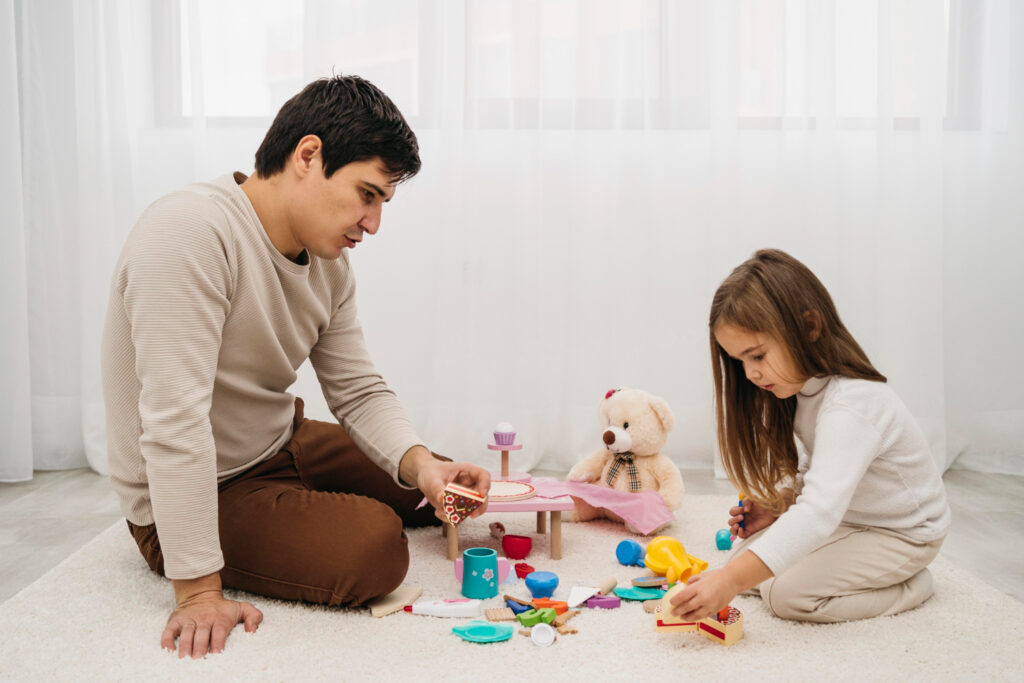Autism Spectrum Disorder (ASD) is a developmental condition that affects how a child communicates, interacts, and behaves. While the signs of autism can vary widely, early detection is crucial for ensuring that children receive the support they need to thrive. For parents of toddlers, understanding the early signs of autism and knowing when to seek help can make a significant difference in their child’s development. At HOPE Centre for Autism, we are committed to providing parents with the information and resources they need to support their child’s growth and development.
Recognizing the Early Signs of Autism in Toddlers
Autism often presents itself in the early years of a child’s life, typically between 18 months and 3 years of age. While every child develops at their own pace, there are certain signs that may indicate a toddler is on the autism spectrum. Being aware of these signs can help parents identify potential concerns early on.
1. Social Interaction Difficulties
- Limited Eye Contact: Toddlers with autism may avoid making eye contact or may not respond to their name being called.
- Lack of Interest in Social Games: Games like peek-a-boo, which are usually popular among toddlers, might not engage a child with autism in the same way.
- Difficulty Understanding Social Cues: A toddler with autism might have trouble understanding social cues, such as smiling or waving.
2. Communication Challenges
- Delayed Speech Development: Some toddlers with autism may not speak by the expected age or might have a limited vocabulary.
- Unusual Speech Patterns: Echolalia, or repeating words and phrases heard from others, is common in children with autism.
- Lack of Gestures: Toddlers with autism may not use gestures like pointing, waving, or nodding to communicate.
3. Repetitive Behaviors and Restricted Interests
- Repetitive Movements: Toddlers on the autism spectrum may engage in repetitive movements, such as hand-flapping, rocking, or spinning.
- Rigid Routines: A strong preference for routines and difficulty coping with changes in their environment or schedule is a common sign of autism.
- Intense Focus on Specific Objects: Some toddlers may become intensely interested in specific objects, such as wheels, lights, or particular toys, and may focus on them for extended periods.
When to Seek Professional Help
If you notice any of the signs mentioned above in your toddler, it’s important to consult with a healthcare professional for further evaluation. Early intervention is key to providing children with the support they need to reach their full potential.
- Developmental Screenings: Regular developmental screenings by your child’s pediatrician can help identify any areas of concern. These screenings often include questions about your child’s social, emotional, and language development.
- Comprehensive Evaluation: If a screening raises concerns, your child may be referred to a specialist for a more comprehensive evaluation. This may include assessments by a developmental pediatrician, psychologist, or speech therapist.
At HOPE Centre for Autism, we offer comprehensive assessments and evaluations for toddlers showing signs of autism. Our team of experienced professionals is here to guide you through the process and provide the support your child needs.
Early Intervention and Its Importance
Early intervention is one of the most effective ways to support toddlers with autism. By addressing developmental delays and challenges early, you can help your child develop the skills they need to communicate, interact, and learn effectively.
- Speech and Language Therapy: For toddlers with delayed speech or communication difficulties, speech therapy can be incredibly beneficial. It can help your child develop language skills, improve their ability to express themselves, and enhance their understanding of social communication.
- Occupational Therapy: Occupational therapy can assist toddlers with autism in developing fine motor skills, improving sensory processing, and learning daily living skills.
- Behavioral Therapy: Applied Behavior Analysis (ABA) is a common behavioral therapy used to teach new skills and reduce challenging behaviors in children with autism. ABA therapy can be tailored to your child’s specific needs and goals.
Supporting Your Toddler at Home
In addition to professional interventions, there are many ways you can support your toddler with autism at home. Creating a structured, supportive environment can help your child feel safe and encourage their development.
- Establish Routines: Consistent daily routines can provide a sense of security for toddlers with autism. Try to keep meal times, bedtimes, and other daily activities consistent.
- Use Visual Supports: Visual aids, such as picture schedules or communication boards, can help your child understand and follow routines. These tools can also support your child’s communication by providing a visual way to express their needs and preferences.
- Encourage Play and Interaction: Engage your child in play that encourages interaction and communication. Simple games like turn-taking or building with blocks can promote social skills and language development.
Seeking Support and Resources
Raising a child with autism can be a challenging journey, but you don’t have to do it alone. Seeking support from professionals, support groups, and other parents can provide valuable insights and encouragement.
- Parent Support Groups: Connecting with other parents who have children on the autism spectrum can provide emotional support and practical advice. Sharing experiences and learning from others can make a significant difference in your journey.
- Professional Guidance: Working with professionals who specialize in autism, such as those at HOPE Centre for Autism, can help you navigate the challenges and find the best strategies to support your child.
Conclusion
Understanding the early signs of autism in toddlers and knowing when to seek help is crucial for providing your child with the support they need. Early intervention, coupled with a supportive home environment, can make a significant difference in your child’s development. At HOPE Centre for Autism, we are dedicated to helping families navigate this journey with compassion, expertise, and personalized care. If you have concerns about your toddler’s development or need support, contact us today to learn more about our services and how we can help your child thrive.
